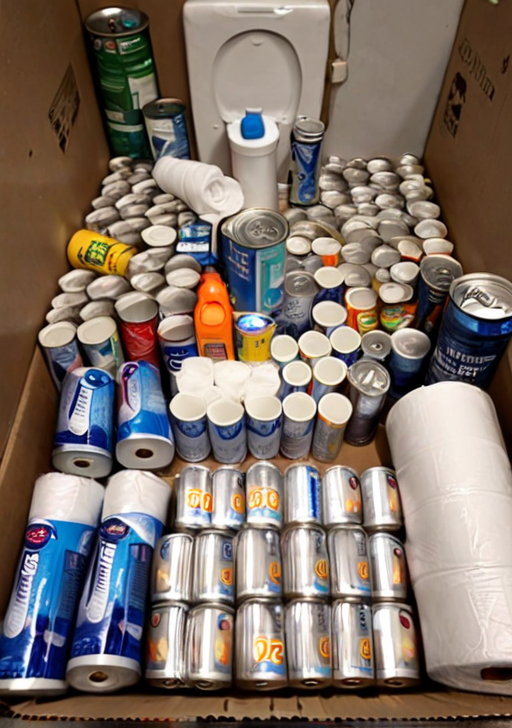
EU Calls for Emergency Preparedness: A Modern Response to Global Crisis Challenges
Introduction
The European Commission has recently issued a striking recommendation for citizens to prepare their own “emergency kits,” a move designed to bolster national resilience during crises. This guidance, which echoes measures last seen during the Cuban Missile Crisis in the 1960s, urges every household in Europe to secure a three-day supply of essentials such as bottled water, canned food, flashlights, and even toilet paper. It has sparked a debate on modern-day preparedness in a world increasingly marked by uncertainty.
Key Takeaways
- EU officials advocate for emergency kits, urging households to stay prepared for unexpected crises.
- The recommendation mirrors crisis strategies from the Cold War era, particularly the 1960s Cuban Missile Crisis.
- Plans include integrating emergency preparedness lessons in schools to better train the younger generation.
- Proposals for a “national preparedness day” aim to build a culture of readiness across Europe.
- The initiative comes amid growing geopolitical tensions and heightened security concerns from both internal and external threats.
Main Body
The Core Issue
The European Commission’s call for the assembly of three-day emergency kits is both a symbolic and pragmatic response to current geopolitical tensions. This directive is aimed at enhancing household crisis resilience at a time when the specter of political instability, cyberattacks, pandemics, and potential military conflicts continues to loom large over the continent.
Context and Background
The recommendation draws parallels with historical moments of national crisis – particularly the Cuban Missile Crisis – when citizens were urged to prepare for worst-case scenarios. Today, the EU’s push for preparedness comes on the heels of complex negotiations and escalating geopolitical tensions between major powers, notably between Russia and the USA. Additionally, criticisms from external figures, including remarks from former U.S. officials, add to the atmosphere of uncertainty, nudging European leaders to adopt precautionary measures.
Impacts and Consequences
The initiative is set to impact a broad range of stakeholders. Citizens are encouraged to stock up on essential supplies, which could lead to a short-term increase in demand and related market fluctuations. Educational institutions are also in the spotlight, as the proposal to incorporate emergency preparedness into school curriculums aims to equip children with practical skills. This shift could fundamentally alter how future generations approach crisis management.
Reactions and Commentary
Responses to the EU’s alert have been varied. Some experts praise the proactive stance, arguing that being prepared is crucial in an unpredictable global landscape. Others, however, view the measures as a sign of underlying panic, suggesting that these steps may be overreactions fueled by international power plays and political posturing. Both governmental and non-governmental entities are closely scrutinizing the policy, providing a kaleidoscope of opinions that range from supportive to sceptical.
What Comes Next
In the coming months, further clarifications on the “national preparedness day” and its operational details are expected. Policymakers might need to address supply chain issues for the recommended kits and ensure that educational programs are both comprehensive and effective. Meanwhile, citizens should stay informed about evolving guidelines and be prepared for any new measures as part of a broader strategy to enhance national security.
Opinion
The EU’s mandate for emergency kits is intriguingly reminiscent of Cold War-era protocols, yet it feels surprisingly pertinent in today’s diversified crisis landscape. While one might chuckle at the notion of “panic kits” in modern societies, the underlying wisdom is undeniable. It’s a prudent, if almost paranoid, reminder that preparation remains our best defense against the unpredictable twists of global politics. The initiative underscores a clear message—better to be safely prepared than regretfully caught off guard.
Conclusion
The European Commission’s emergency preparedness recommendation serves as a timely reminder of the enduring need for resilience in the face of mounting crises. While drawing on historical precedents, the policy reflects modern fears and the evolving nature of global geopolitics. Whether viewed as a strategic necessity or an overzealous precaution, it undeniably reopens the conversation on how best to protect communities in a rapidly shifting world.
Hashtags
✅ Important: #EmergencyPreparedness #EUPolicies #CrisisManagement #GeopoliticalTensions #ModernSecurity
